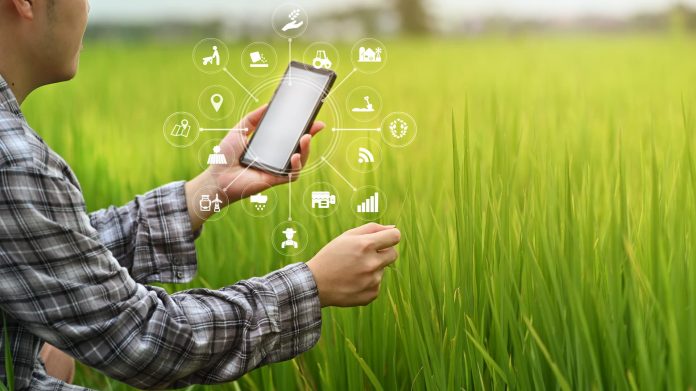In the realm of agriculture, the winds of change are blowing, heralding the advent of an era where technology and traditional farming practices merge to create a future that’s not only sustainable but also incredibly efficient. This transformation is largely powered by the Internet of Things (IoT), a network of interconnected devices that communicate and exchange data with each other. As we delve deeper into the 21st Century, IoT devices are revolutionizing the agricultural landscape, making the dream of smart farming a vivid reality.
Table of Contents
The Seeds of Change: IoT in Agriculture
IoT devices in agriculture encompass a wide range of technologies, from soil moisture sensors and climate condition monitors to automated irrigation systems and drones for crop surveillance. These devices collect data in real-time, providing farmers with invaluable insights into their fields’ conditions, thus allowing for more informed decision-making. By understanding the specific needs of their crops at any given time, farmers can optimize water usage, reduce the reliance on pesticides, and increase crop yields – all while minimizing their environmental footprint.
Precision Agriculture: A Closer Look
At the heart of smart farming is precision agriculture, a farming management concept based on observing, measuring, and responding to variability in crops. Through the data collected by IoT devices, farmers can understand variations within their fields and adjust their strategies accordingly, applying the right amount of water, fertilizers, and pesticides only where needed. This precision not only boosts crop health and yield but also reduces waste, ensuring resources are used efficiently.
IoT-Enabled Solutions: From Soil to Sale
IoT technology offers solutions that span the entire agricultural cycle. For instance, drones equipped with advanced imaging technology can identify areas that need attention, allowing for targeted interventions. Similarly, livestock monitoring devices can track the health and well-being of animals, alerting farmers to any issues that may arise, thus improving livestock management and productivity.
Moreover, IoT devices play a crucial role in storage and inventory management. Hay sheds, crucial for storing valuable feed and grain, can be outfitted with IoT sensors to monitor conditions like temperature and humidity, ensuring optimal storage conditions and reducing the risk of spoilage. For those in the market, finding quality hay sheds for sale is easier than ever, offering a way to protect your investment by equipping these sheds with the latest in agricultural technology.
The Future is Now: The Impact of IoT on Agriculture
The impact of IoT on agriculture is profound. By providing real-time data, IoT devices help farmers make better decisions, leading to increased productivity, sustainability, and profitability. Furthermore, the ability to monitor and manage farms remotely is particularly beneficial for those who manage large or multiple properties, saving time and resources.
Challenges and Opportunities
Despite its many benefits, the adoption of IoT in agriculture faces several challenges. These include the high cost of technology, the need for technical expertise, and concerns about data security and privacy. However, as technology advances and becomes more accessible, these challenges are gradually being overcome. Governments and private entities are increasingly investing in agricultural technology, recognising its potential to address pressing issues such as food security and climate change.
Final Thoughts
There’s no doubting that the integration of IoT devices into agriculture is transforming the industry, ushering in a new era of efficiency and sustainability. As we continue to embrace these technological advancements, the future of farming looks brighter than ever. With smart farming, we can ensure that the agricultural sector remains viable and productive for generations to come, feeding our growing population while protecting the planet.
Smart farming is not just a vision of the future; it’s a reality that’s happening now, and it’s reshaping agriculture in ways we could only imagine a few decades ago. As we move forward, it’s clear that technology will continue to play a pivotal role in how we grow our food, manage our resources, and sustain our world.












